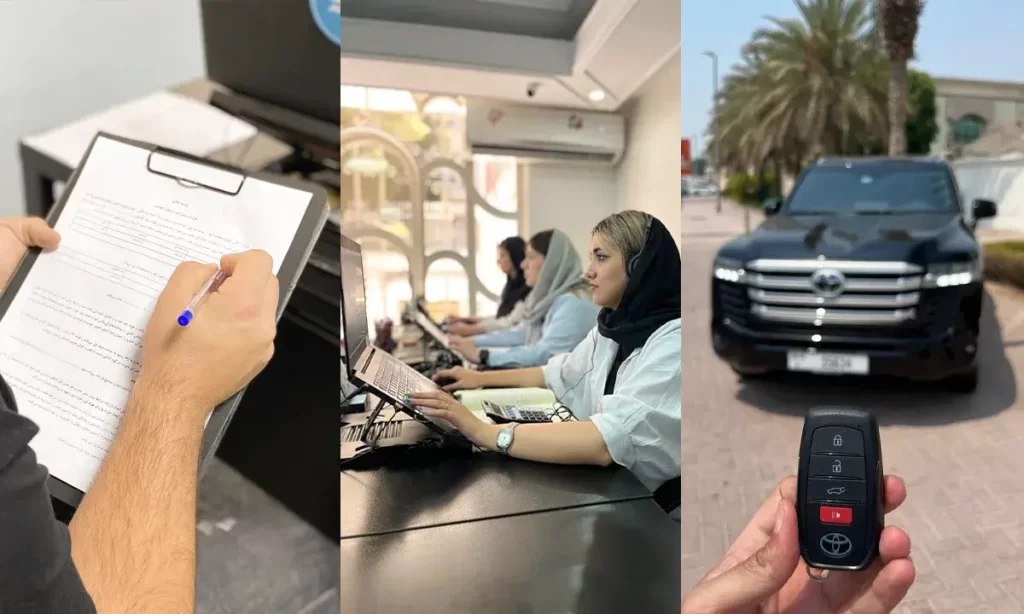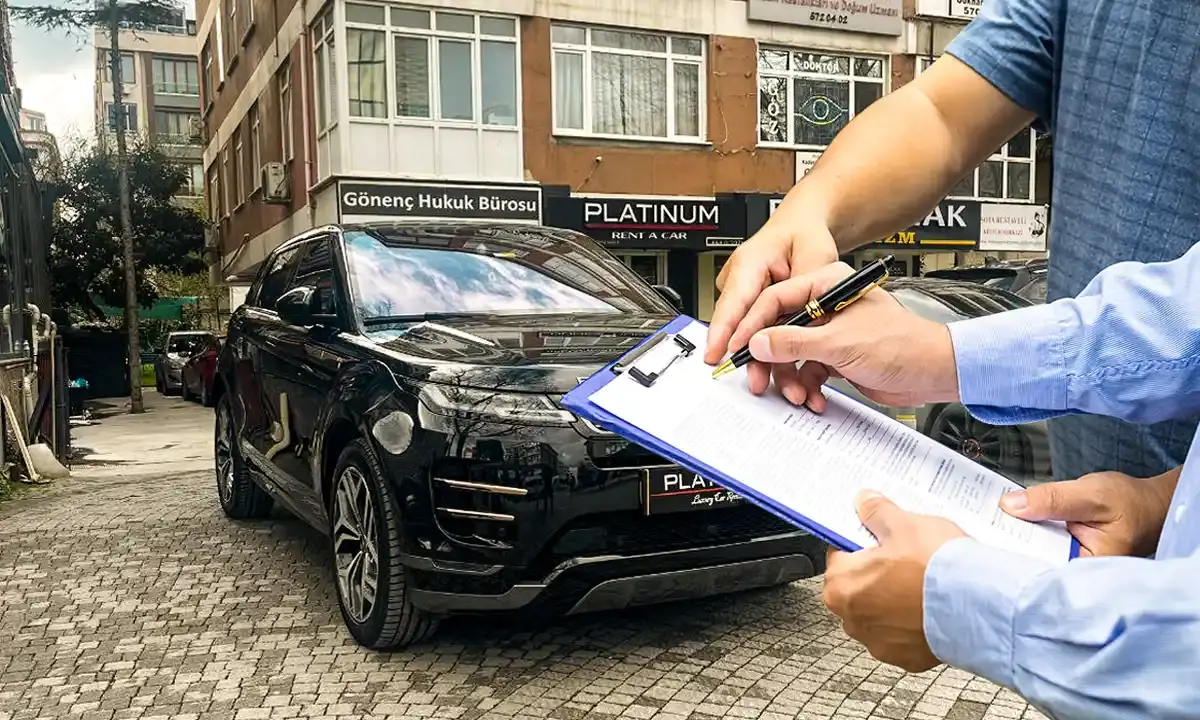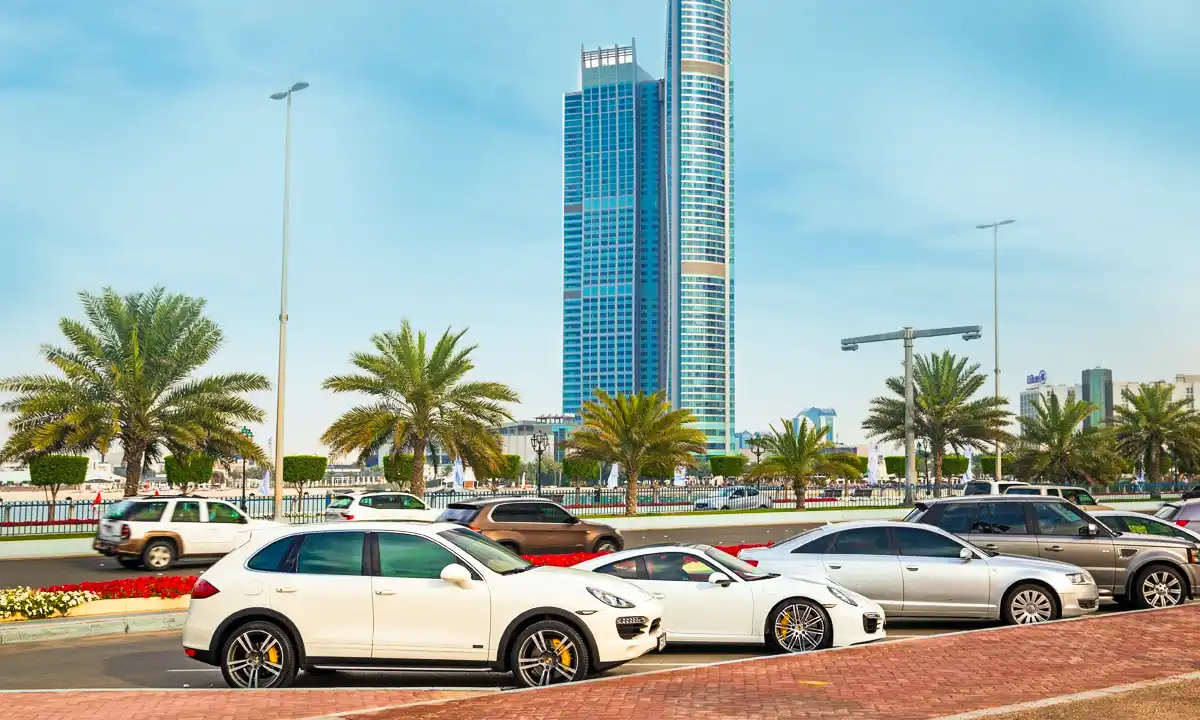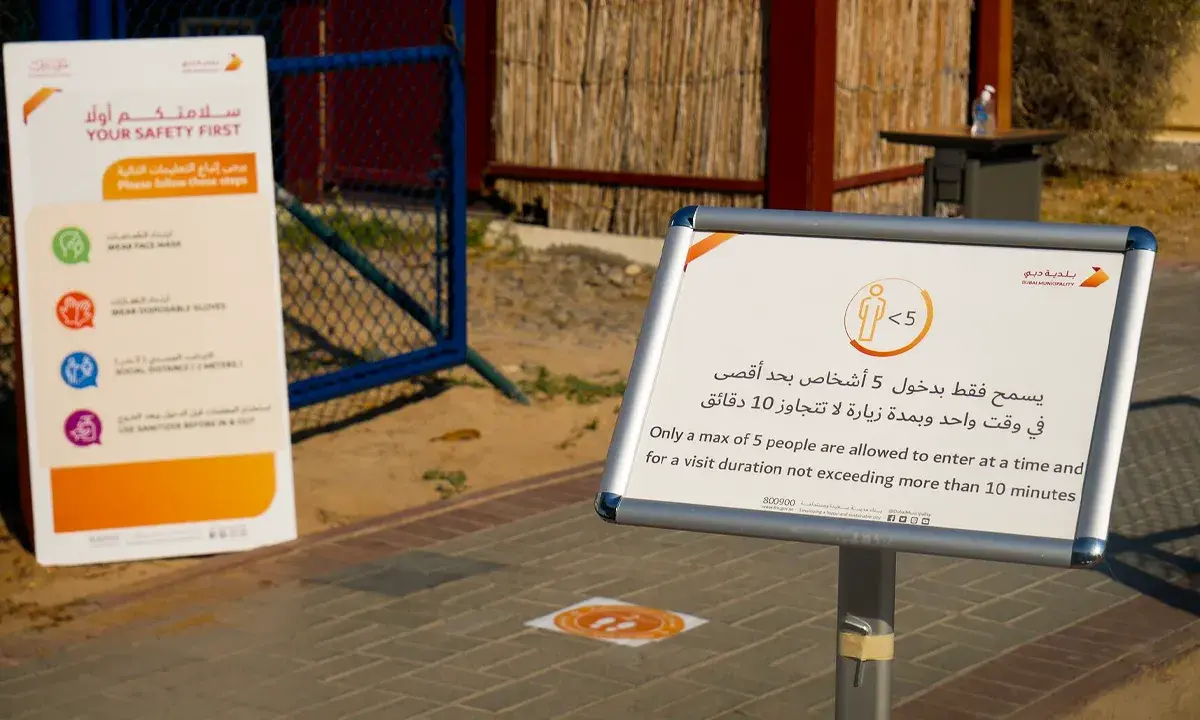Renting a car in Dubai offers a convenient way to explore the city’s many attractions, but it’s crucial to understand the local rules to ensure a smooth experience. In Dubai, the Roads and Transport Authority (RTA) has set specific regulations for car rentals. Key requirements include possessing a valid driver’s license, with international licenses accepted for tourists and UAE licenses necessary for residents. Renters must be at least 21 years old, though this can vary by company and vehicle type. A security deposit is mandatory, and renters are responsible for traffic fines incurred during the rental period. Understanding these essential rules will help you navigate the car rental process in Dubai efficiently and legally so stay with us to the last.
Rules Set by the UAE Government for Car Rentals
The UAE government has established several rules and regulations to ensure the safety and smooth operation of car rentals in Dubai and across the country. When renting a car in Dubai or anywhere in the UAE, there are specific rules and regulations set by the Roads and Transport Authority (RTA) to ensure safety and compliance:
- Valid Driver’s License: Drivers must possess a valid driver’s license to rent a car. Tourists and expatriates can use their home country’s driver’s license if they are from an approved country. In some cases, an International Driving Permit (IDP) is also required alongside the home country license.
Note: A UAE resident would require a valid UAE license to rent a car, while visitors or tourists from the GCC nations can drive with the license issued by their home countries. Citizens of the following countries can also rent a car with a driving license issued by their home countries: Australia, Austria, Belgium, Canada, Denmark, Finland, France, Germany, Greece, Ireland, Italy, Japan, South Korea, Netherlands, New Zealand, Norway, Poland, Portugal, Romania, South Africa, Spain, Sweden, Switzerland, United Kingdom, and the United States. For all other nationalities, an international driving license is mandatory.
- Minimum Age Requirement: To rent a car in the UAE, drivers must be at least 21 years old. Some rental companies may have higher age requirements, typically 25 years old, especially for premium or luxury vehicles.
- Insurance: All rental cars must be insured. Basic insurance coverage is typically included in the rental cost, but it is advisable to check the extent of coverage. Additional insurance options are available for extra protection, such as collision damage waiver (CDW) and theft protection.
- Security Deposit: Rental companies usually require a security deposit, which can be paid via credit card. The amount varies depending on the rental company and the type of vehicle. This deposit is refunded upon the safe return of the vehicle.
- Traffic Fines: The driver is responsible for any traffic violations and fines incurred during the rental period. This includes speeding, parking tickets, and other infractions. Rental companies may charge an additional fee for processing these fines.
- Mileage Limits: Some rental agreements may include mileage limitations. Exceeding the allowed mileage can result in additional charges. It’s important to understand these limitations and plan your travel accordingly.
- Prohibited Uses: Rental cars must not be used for illegal activities, off-road driving (unless specifically allowed), or transporting hazardous materials. Violating these rules can result in penalties and additional charges.
- Documentation: Renters must provide necessary documents, such as a valid passport, visa, and driver’s license when renting a car.
- Additional Drivers: If multiple people will be driving the rental car, additional drivers must be registered with the rental company. Additional drivers must meet the same age and license requirements as the primary driver and may incur extra fees.
- Vehicle Inspection: It is advisable to inspect the vehicle for any existing damage before taking it and report it to the rental company to avoid disputes upon return.
- Return Conditions: The vehicle must be returned in the same condition it was rented. Any damage or excessive wear and tear will result in additional charges. It’s important to inspect the car thoroughly before accepting it and document any existing damages.
By adhering to these rules, renters can ensure a smooth and hassle-free car rental experience in Dubai and throughout the UAE. For more detailed and specific regulations, visiting the official RTA website is recommended. These guidelines help ensure a smooth and legal car rental experience in Dubai and across the UAE.
General Rules Set by Other Car Rental Companies in Dubai
The customer should inform the rental company in advance about any required extension of the rental contract. If the customer fails to return the vehicle on the due date and does not notify the rental company of any extension, the agreement will be renewed automatically, and charges will be debited from the available credit card.
By accepting the Vehicle, the Renter confirms that the rental vehicle is in the same condition indicated on the Vehicle Check Report and the Renter accepts full liability for any further damage to or loss of the Vehicle, however, it occurs.
The Renter agrees to return the Vehicle with all documents and accessories (such as the spare tire and the toolkit) in the same condition as received at the location and on the date and time stated in the Agreement.
Car rental companies are not liable to the Renter or any passenger or third party for loss or damage to property left in the vehicle either during the period of rental or thereafter. Such property is entirely at the Renter’s own risk throughout the term of the agreement.
The rental company reserves the right to repossess the Vehicle at any time if the Vehicle is used in violation of this Agreement or if the Renter fails to settle its financial obligations to the rental company.
The Renter is fully responsible for any damage to the Vehicle especially if it occurred as a result of contaminated fuel and/or was caused by driving through floodwater, and/or water damage and/or sea beaches and/or rocky deserts and/or sand dunes/off roads.
In case of an accident (with or without damage to the Vehicle), any personal injuries, or theft of the vehicle or parts of it, the Renter must inform the rental company and immediately report the accident to the police to obtain a valid police report after providing or satisfying all required documents, information or procedures requested by the Police.
Early termination of monthly contracts will result in a higher rate. This is calculated based on the applicable rates for actual used days.
Saadat Rent Rules for Car Rental in Dubai
- All cars are washed and cleaned and delivered to the customer and the lessor agrees to return the car to a car wash and clean, Otherwise, 25 dirhams will be charged, if the car is dirty.
- In case of any accident, the lessor should not move the vehicle from the scene before the police inspection. The renter must deliver all the required documents immediately to the office from which he/she rented the car, otherwise, the renter will be fully responsible.
- The lessor has a UAE certificate or international driving license that is less than one year from the date of issue or if the lessor is less than 21 years old, will be liable for all damages resulting from any accident.
- In the event of an accident or technical problem, the tenant must notify the company from which he rented the car. The tenant is not allowed to repair without notifying the renting company.
- If an accident occurs due to the driver being affected by alcohol or any other alternative that has the same effect, the lessor must then compensate for all damage to the vehicle.
- The lessor agrees to use the vehicle for the purpose for which It is licensed. Rental vehicles should not be used for motorsports events, rally racing, and towing of vehicles and for transporting goods in violation of UAE law.
- The lessor must ensure that the vehicle is parked in a safe and secure place when not in the UAE. Any damage to the vehicle, including damage caused by divine acts, will only be borne by the lessor because these damages can not be claimed from insurance.
- The mileage limitation at Saadat Rent is 250 km per day and exceeding these limits incur additional charges.
- If you have a fine of more than 200 AED, you must pay the fee when you return the car.
Note: You can get more information about car rental terms and conditions in Dubai at Saadat Rent by taking a look at the Saadat Rent Policy page.
Last Words
Understanding the car rental rules in Dubai is essential for a seamless experience. When comparing Saadat Rent with other car rentals in Dubai, several advantages become apparent. Saadat Rent offers more competitive rates, a broader selection of vehicles, and a superior customer service experience. Saadat Rent’s comprehensive insurance coverage and transparent pricing structure stand out against other car rental companies’ more restrictive policies and higher fees. Additionally, Saadat Rent provides more flexible insurance options, making it a better choice for those looking to safely drive in Dubai. By choosing Saadat Rent, you ensure a more economical, flexible, and enjoyable car rental experience in Dubai.
FAQ
Here are the frequently asked questions about car rental rules in Dubai.
Are there mileage limits on rental cars in Dubai?
Yes. You have 250 km per day for driving in Dubai or any other cities in the UAE.
What are the fuel policies for car rentals in Dubai?
Most rental cars come with a full tank of fuel and should be returned with a full tank. If the car is returned with less fuel, Saadat Rent will charge for refueling.
Can I rent a car in Dubai and drive to other emirates or countries?
You can typically drive a rental car throughout the UAE, but taking the car outside the country, such as to Oman, requires special permission from Saadat Rent.

























